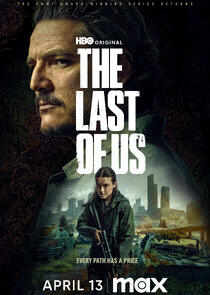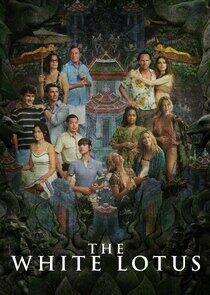Timewatch - Season 34 / Year 2017

Season 34 / Year 2017
A Timewatch Guide

Episodes
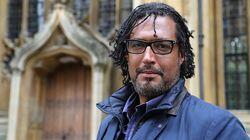
British Empire: Heroes and Villains
Less than 100 years ago, the British ruled a quarter of the planet and one in five of the global population. Once, people were proud to call themselves imperialists, but now, to many, that seems like a badge ofshame.
In this Timewatch guide, David Olusoga examines not whether the British Empire was a force for good or ill, but rather how it has been portrayed on British television over the last 70 years.
Drawing on decades of the documentary series Timewatch, plus many other gems from the BBC archive, David sees how Britain's Caribbean colonies grew rich on slave labour, how chaos gripped India post-independence, and how Africa was plundered for her mineral wealth.
David investigates how film-makers through the years have represented the actions and legacy of Britain's period as the world's ultimate superpower. It used to be said that the sun would never set on the British Empire - now, long after it's gone, the arguments surrounding it are very far from being settled.
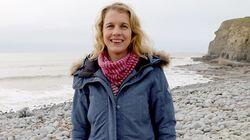
Decoding Disaster
From earthquakes to tsunamis to volcanic eruptions, natural disasters are both terrifying and fascinating - providing endless fresh material for documentary makers. But how well do disaster documentaries keep pace with the scientific theories that advance every day?
To try and answer that question, Professor Danielle George is plunging into five decades of BBC archive. What she uncovers provides an extraordinary insight into one of the fastest moving branches of knowledge. From the legendary loss of Atlantis to the eruption that destroyed Pompeii, Danielle reveals how film-makers have changed their approach again and again in the light of new scientific theories.
While we rarely associate Britain with major natural disaster, at the end of the programme Danielle brings us close to home, exploring programmes which suggest that 400 years ago Britain was hit by a tidal wave that killed hundreds of people, and that an even bigger tsunami could threaten us again.
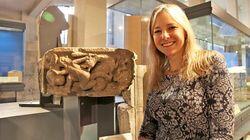
The Vikings: Foe or Friend?
On June 8th 793 Europe changed, forever. The famous monastery at Lindisfarne on the Northumbrian coast was suddenly attacked and looted by seafaring Scandinavians. The Viking Age had begun.
Professor Alice Roberts examines how dramatically the story of the Vikings has changed on TV since the 1960s. She investigates how our focus has shifted from viewing them as brutal, pagan barbarians to pioneering traders, able to integrate into multiple cultures. We also discover that without their naval technology we would never have heard of the Vikings, how their huge trading empire spread, and their surprising legacy in the modern world.

Dictators and Despots
In recent years the world has become an unsettling place, from the mass movements of refugees to political upheaval, both in this country and abroad.
Disturbingly, history shows that it's at unsettled times like this that dictators can rise - leaders who promise they can solve every problem, if only they're granted supreme power.
David Olusoga examines fifty years of BBC documentary archives to try and discover why dictators can have such a powerful appeal.
David uncovers the surprising optimism felt by the West towards men like Gaddafi and Mugabe early in their regimes, and examines the events that turned this optimism into horror. He questions why such men continue to fascinate us regardless of their actions, and asks whether, especially in an age of mass media, our fascination has fed their power.
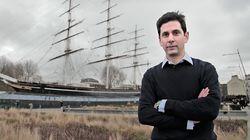
Explorers: Conquest and Calamity
For centuries the story of exploration has been packed with incredible tales of adventure, but the last fifty years has seen a dramatic shift in our attitude towards explorers.
To find out how television has reflected this, Prof Fara Dabhoiwala delves into the BBC television archives, revealing that the pace of this change was faster than you would imagine. In the 1960s the BBC was still making programmes showing Christopher Columbus as an uncomplicated conquering hero. Barely a decade later, it made a documentary that delved into museum storerooms packed with artifacts brought back to Britain by Captain Cook, focusing on the perspective of the explored rather than the explorer.
As the story of exploration became as much about social calamity as conquest, television has been forced to find new ways to portray explorers. By the 21st century this included everything from focusing on adventurers like Ernest Shackleton, famous not for conquest but for saving the lives of his men, to using new technology to demystify exploration by making programmes from material shot by the explorers themselves.
Recently Updated Shows

MobLand
With the most powerful clients in Europe, MobLand will see family fortunes and reputations at risk, odd alliances unfold, and betrayal around every corner; and while the family might be London's most elite fixers today, the nature of their business means there is no guarantee what's in store tomorrow.
MobLand follows two generations of gangsters, the businesses they run, the complex relationships they weave and the man they call upon to fix their problem.
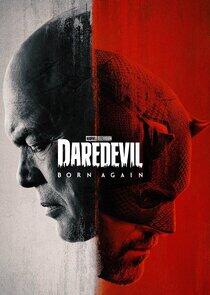
Daredevil: Born Again
Matt Murdock finds himself on a collision course with Wilson Fisk when their past identities begin to emerge.
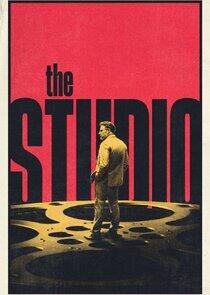
The Studio
As movies struggle to stay alive and relevant, Matt and his core team of infighting executives battle their own insecurities as they wrangle narcissistic artists and craven corporate overlords in the ever-elusive pursuit of making great films. With their power suits masking their never-ending sense of panic, every party, set visit, casting decision, marketing meeting, and award show presents them with an opportunity for glittering success or career-ending catastrophe. As someone who eats, sleeps, and breathes movies, it's the job Matt's been pursuing his whole life, and it may very well destroy him.
